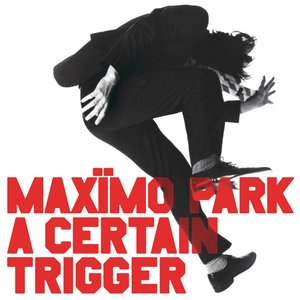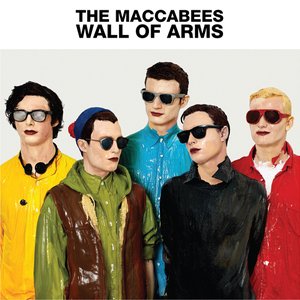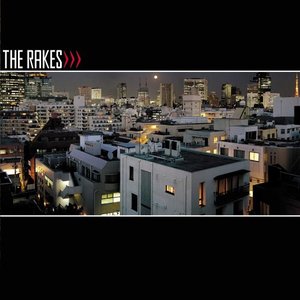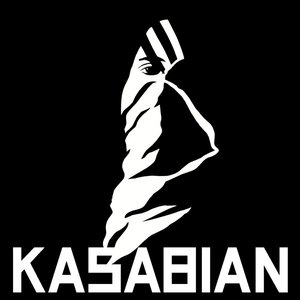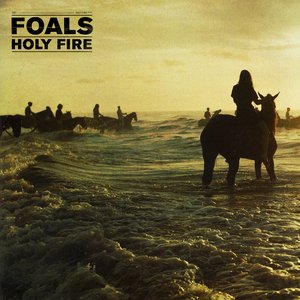Wiki
-
Release Date
1 January 2008
-
Length
11 tracks
Intimacy is the third studio album by British indie rock band Bloc Party. It was recorded in two weeks at several locations in London and Kent during 2008 and was produced by Paul Epworth and Jacknife Lee. Inspired by the release options available in the Internet age, the band members made the album available for purchase on their website as a digital download on 21 August 2008. Minimal promotion was undertaken in the UK. The record was released in compact disc form on 24 October 2008, with Wichita Recordings as the primary label. It peaked at number 8 on the UK Albums Chart and entered the Billboard 200 in the United States at number 18.
Bloc Party wanted to create an album that further distanced the band from the traditional rock set-up by incorporating more electronic elements and unconventional musical arrangements. As the record's title suggests, its tracks are about personal relationships and are loosely based on one of frontman Kele Okereke's breakups in 2007. Three songs were released as singles: "Mercury", "Talons", and "One Month Off"; the first two tracks entered the UK Top 40. Intimacy was generally well received by critics. Reviewers often focused on its rush-release and central theme, and considered them either bold steps or poor choices.
Origins and recording
Bloc Party's second album A Weekend in the City, released in 2007, allowed the quartet to evolve sonically by including more electronically tampered soundscapes, but the band members were not entirely comfortable with more daring musical arrangements when making the record. According to multi-instrumentalist Gordon Moakes, the impromptu November 2007 single "Flux" "opened a door to the fact that we could go in any direction" in future works. After the NME Big Gig in February 2008, the band members took a month off from touring and did not interact with each other during that period. Moakes felt that there were no rules when the band re-assembled for studio work. Chief lyricist Okereke completed most of the songwriting before the recording process.
You know what the parameters are. You aren't stifled by having too much choice. You know what you have to do in this time frame to make it work. Whereas if we had a whole year in a studio it would have been a very different record. That's the conditions that Bloc Party thrive under: having to work quickly.
Kele Okereke, on Bloc Party's methods during the recording of Intimacy
In mid-2008, Bloc Party attended secret sessions at studios in the south-east of England. The band aimed to use a similar process to the creation of "Flux", which was crafted in a week. Paul Epworth and Jacknife Lee—from Bloc Party's previous albums, Silent Alarm and A Weekend in the City, respectively—returned to the production staff for Intimacy, because the band members felt that they had "unfinished business" with both. Okereke has stated that having two producers allowed for musical experimentation. Epworth focused on capturing the dynamic of a live band by working on fully developed songs and emphasising the rhythm section in the mix. Lee aided the band members' evolution towards a more electronic style by creating tracks with them. Each producer worked on five of the record's original ten tracks.
According to Okereke, Bloc Party wanted to make something as stylised as R&B or electronica, combining the rawness of Silent Alarm and the recording experience gained from A Weekend in the City. The frontman drew inspiration from Siouxsie and the Banshees’ 1988 song "Peek-a-Boo" and aimed to create "rock interpretations of dance". The band worked by initially performing sound checks with only guitar chords, keyboard notes, and drum beats. Discussing the interplay between rhythm guitarist Okereke and lead guitarist Russell Lissack, Epworth has stated that "Kele will do one thing that creates a great deal of impact, whereas Russell's very good at subtle embellishments and leading the melodic side of things outside of the vocal". The band members decided to record the first ten tracks crafted after judging first ideas to often be the best. They "thrived" under the pressure of timed sessions, which lasted only two weeks.
Moakes has indicated that there was no worry about whether a song could be recreated live in concert in the same way as it would appear on record. A brass section and a chamber choir were hired as additional musicians. Drum machines and distorted guitars were used more extensively than in Bloc Party's previous works to create a sense of manipulation to the basic rock palette. Drummer Matt Tong was initially skeptical of moulding songs with programmed drums, as opposed to using his physical output, but agreed to the idea when the band recorded some of the tracks in their entirety. On some songs, the guitars were disregarded and the band focused solely on the beat. Okereke's voice was often used as an instrument by being looped, vocoded, or run through effects pedals.
Critical reception
Media response to Intimacy was generally favourable; aggregating website Metacritic reports a normalised rating of 69% based on 27 critical reviews. Steven Robertshaw of Alternative Press described the album as arguably Bloc Party's finest career moment and noted that it offers "sweat and circuitry, savagery and submission, and a captivating energy that's severely lacking in many music scenes on the planet". Kyle Anderson of Rolling Stone claimed that by "replacing Bloc Party's distant cool with vivid honesty, Okereke makes Intimacy a confident new peak for his band", while PopMatters' Ross Langager explained that the record "might not actually be all that intimate, but it is a thing of rough, recycled beauty". Adam Mazmanian of The Washington Times commented that the album's final mix showed that producers Epworth and Lee preserved the essence of Bloc Party's signature sound—"minor key rock thrumming with rhythmic intensity"—while taking the band in new musical directions. Dave Simpson of The Guardian concluded that it would please old and new fans alike by being "brave, individual and heartfelt".
Pitchfork Media's Ian Cohen was less receptive and asserted that the record seems like a document of a band disconnected from its musical strengths. Josh Modell of Spin felt that Intimacy sometimes gets "sonically or lyrically precarious", while John Robinson of Uncut commented that "there's an air of slightly hedged bets". Drowned in Sound's Nick Southall claimed that the record is not quite the radical statement Bloc Party set out to achieve, but concluded that it is "definitely a little bit of invigorating redemption at a time when doubts were beginning to cloud what was, initially, a flawless reputation". In its year-end music review for 2008, Under the Radar stated about the band members, "They are so solid and so confident that it seems inevitable that they will get many chances to slowly drift into more daring lands. But without more risk, they may be destined to make albums like Intimacy – accomplished and intriguing, but not life changing, not classic." The record figured in several publications' end-of-year best album lists for 2008—notably, at number 14 by Gigwise, at number 36 by Drowned in Sound, and at number 49 by NME.
Album descriptions on Last.fm are editable by everyone. Feel free to contribute!
All user-contributed text on this page is available under the Creative Commons Attribution-ShareAlike License; additional terms may apply.


